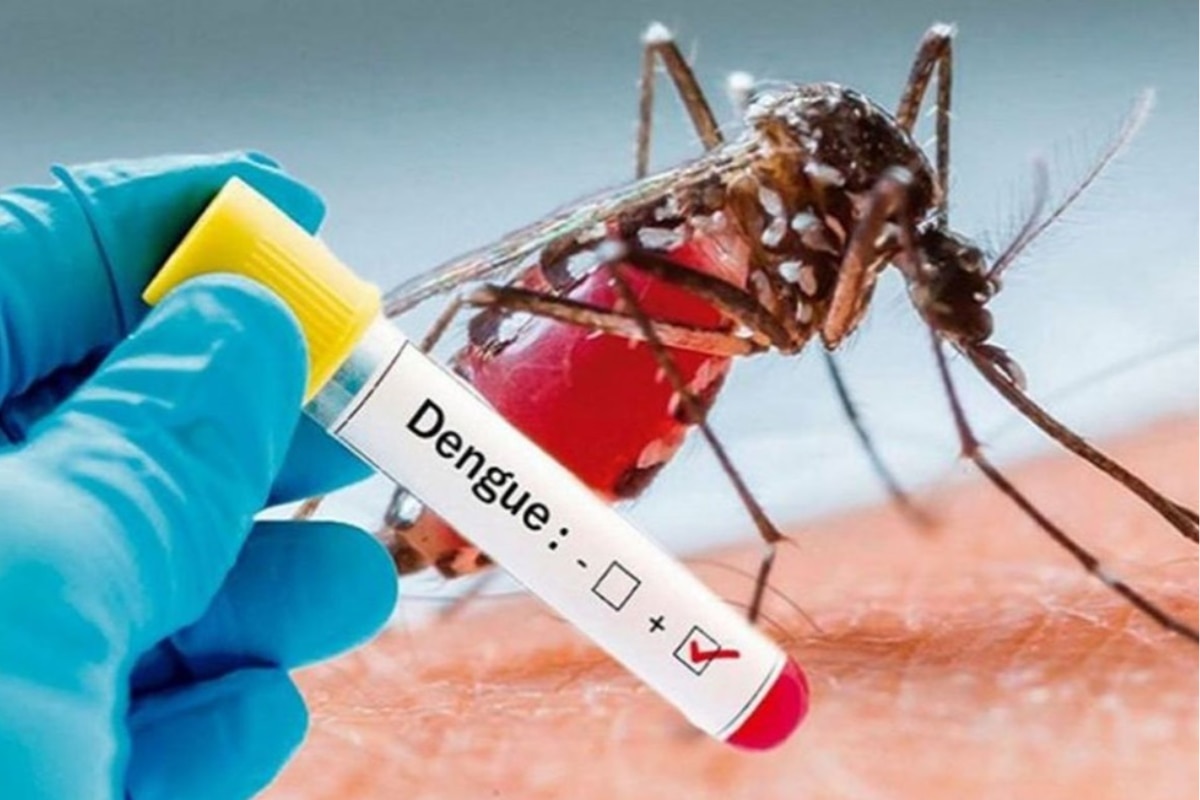Increasing cases of dengue: Many parts of India, including Delhi-NCR and Uttar Pradesh, are witnessing an increase in dengue-related cases. Over 2,200 cases of dengue have been reported in Uttar Pradesh, while over 380 cases have been reported in the state capital Lucknow. Between October 1 and October 5, more than 300 cases have been reported in Delhi. India has seen a further increase in cases due to incessant rains.Also Read – A sharp rise in dengue cases in West Bengal in just one month, health department blames civic bodies
In the wake of rising dengue cases in the national capital, the Delhi government ordered all Delhi hospitals to “reserve 10-15 percent of beds for patients with vector-borne diseases”. The Union Health Ministry has dispatched a high-level six-member team to collaborate with Uttar Pradesh authorities to take public health measures for dengue management in Firozabad, Agra and Etawah districts, news agency PTI reported. Also Read – Dengue Alert! Amid heavy rains, Delhi saw a surge in cases, with the number crossing 500
An increase in dengue cases has also been seen in Bihar. The state has reported 3,965 dengue cases so far in 2022, of which 78 percent – or 3,107 cases – are from Patna. This is 3.5 times more than the cases reported in Bihar in 2020 and 2021. And this number is still expected to increase. Also Read – Dengue Prevention Tips: Delhi sees a sharp rise in dengue cases, here’s how you can protect yourself – watch video
What are the common symptoms?
- high fever
- severe physical pain
- Vomit
- Loss of appetite
- Itchy skin rash
- Take B.P
- Pain in the stomach, behind the eyes, in your bones
- Nausea
- Light bleeding (from the nose and gums, when vomiting or in the stool)
Fatigue and restlessness
What causes dengue?
Dengue fever is caused by the bite of an infected Aedes aegypti mosquito. Dengue can also be caused by the bite of Aedes albopictus mosquito. There are four types of dengue virus (DENV) that can be transmitted through mosquito bites.
When should a person get tested for dengue?
Once a person shows symptoms suggestive of dengue, he/she may develop dengue NS1 antigen anytime from the first day to the fifth day of onset of symptoms. Dengue IgM serology test should be done four to five days after illness as time is of the essence.
How do I know if I need blood platelets?
According to experts, platelet transfusion is not mandatory and should be done only if there are signs of bleeding or the platelet count is less than 10,000.
How is dengue diagnosed?
Dengue can be diagnosed by two tests:
- NS-1 Ag: Detects virus up to six days after infection begins
- Dengue Serology: Detects the virus five days after onset of illness
What you should do to protect yourself
- Do not allow mosquitoes to breed in your vicinity. It can reduce the risk of dengue.
- Wear long-sleeved clothes, full pants with socks and covered shoes to avoid mosquito bites.
- Prevent mosquitoes from entering your home by keeping your doors and windows properly closed.
- Keep your house and surroundings clean.
- The use of mosquito repellents can help prevent mosquito bites, especially in densely populated and crowded tropical locations.
The rains last week have worsened the situation. Stagnant and delayed rains provide a favorable environment for mosquitoes to breed. There are more chances of waterlogging, stagnant pools and high humidity.
.
Source link
